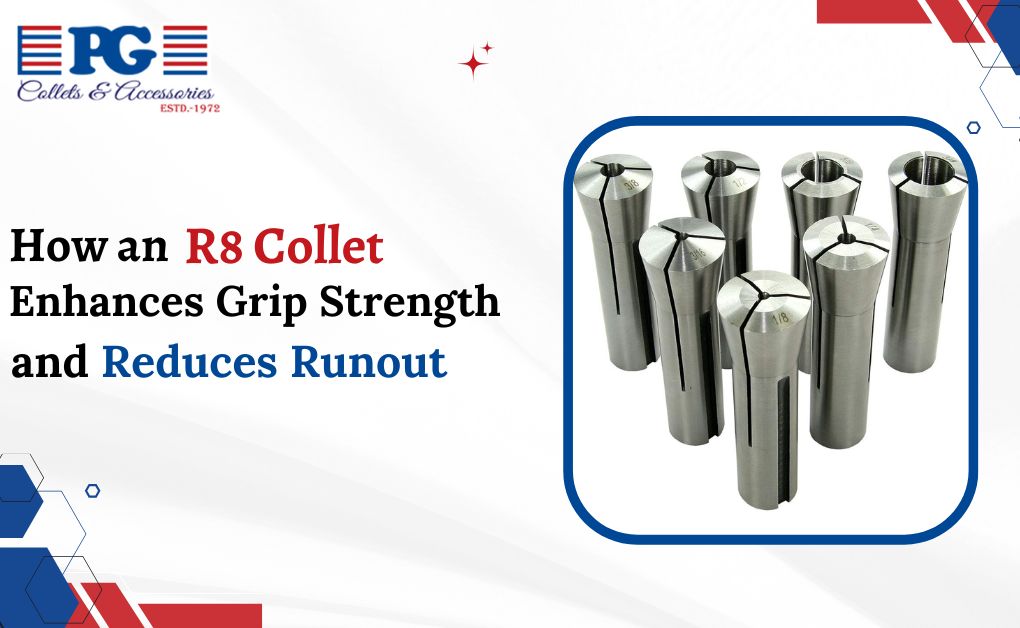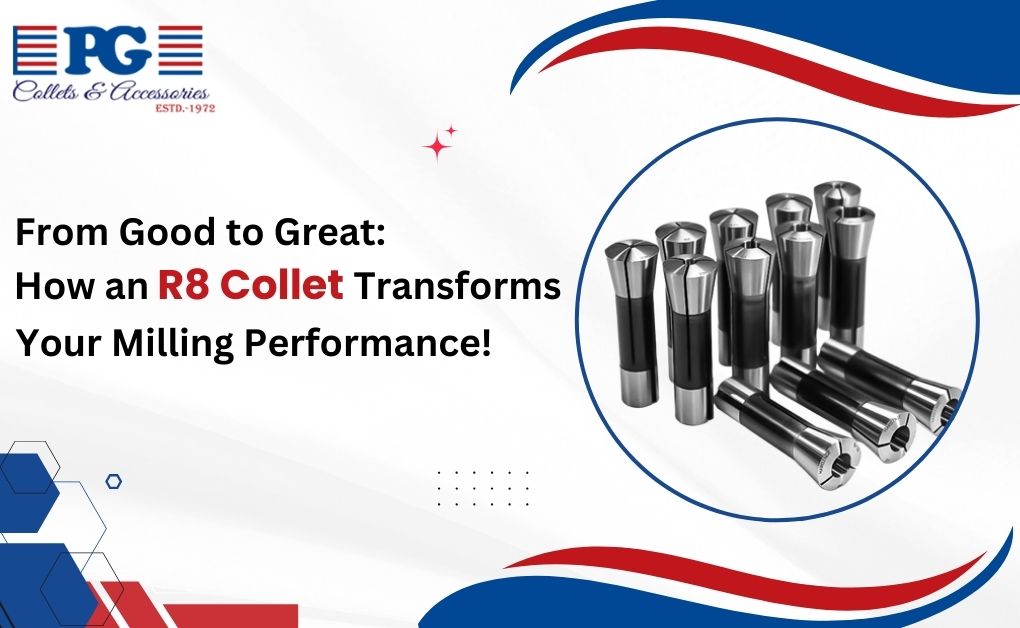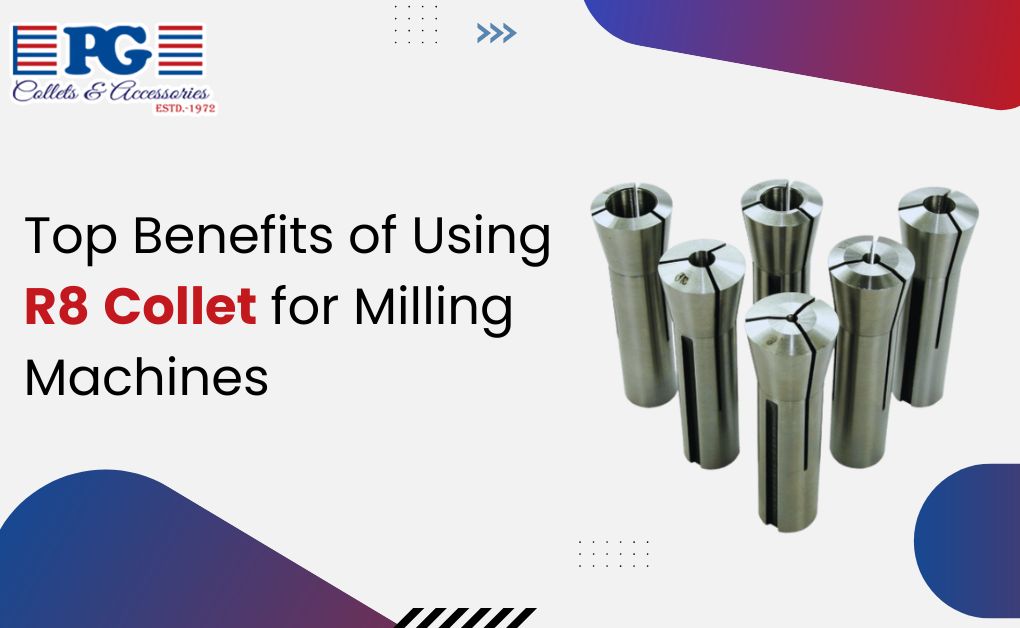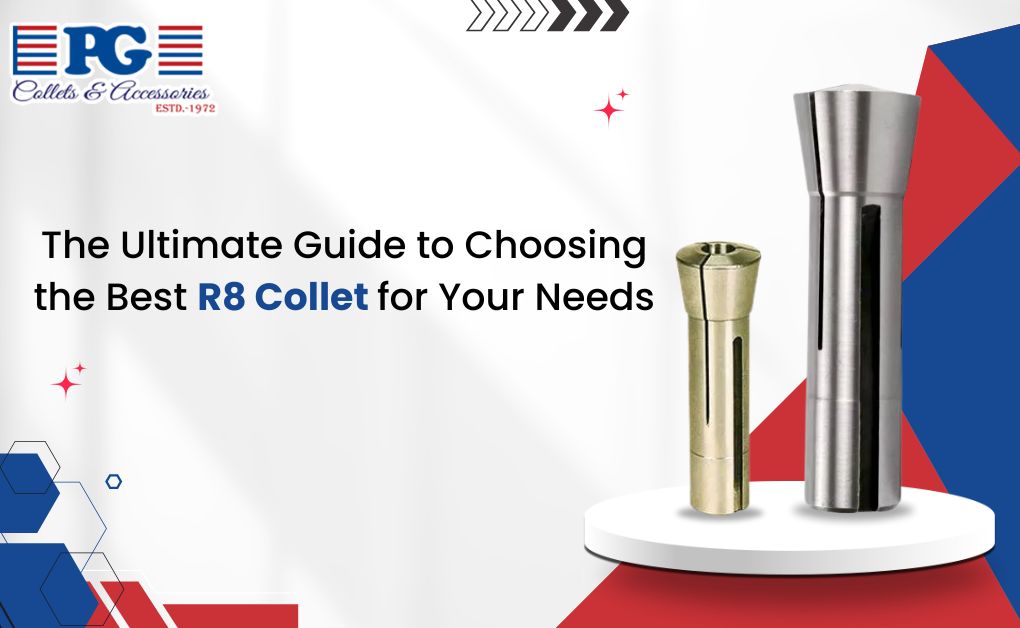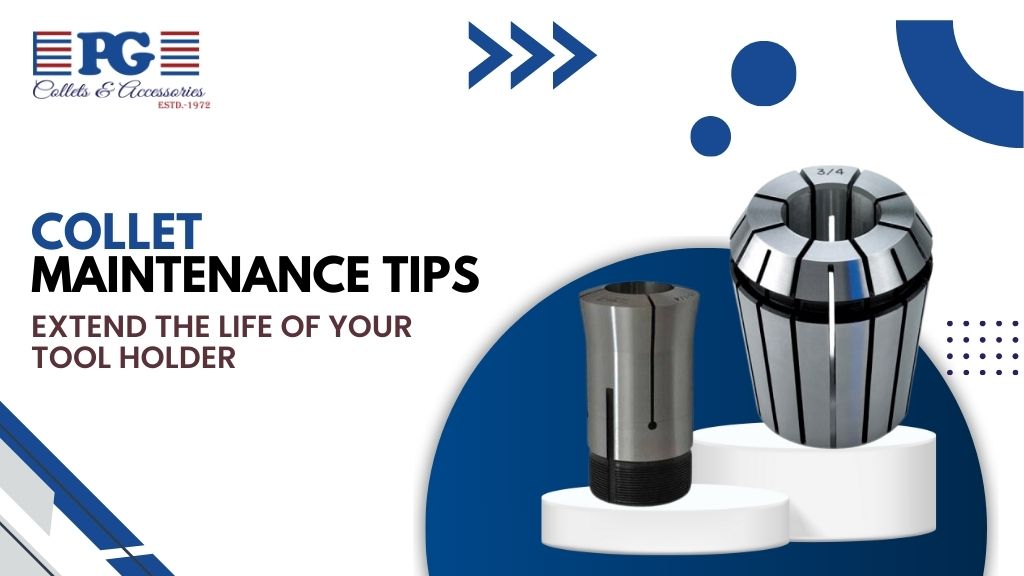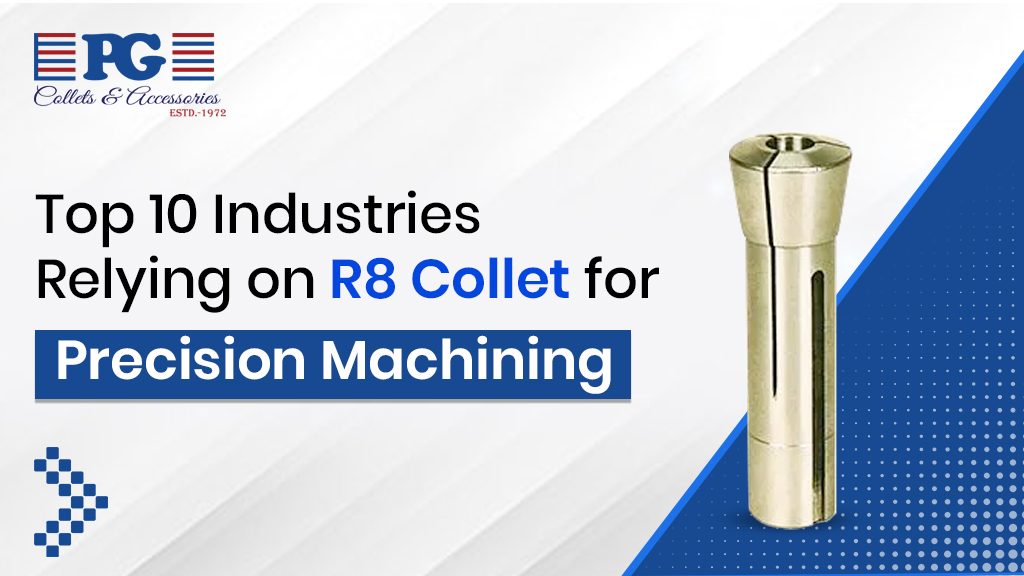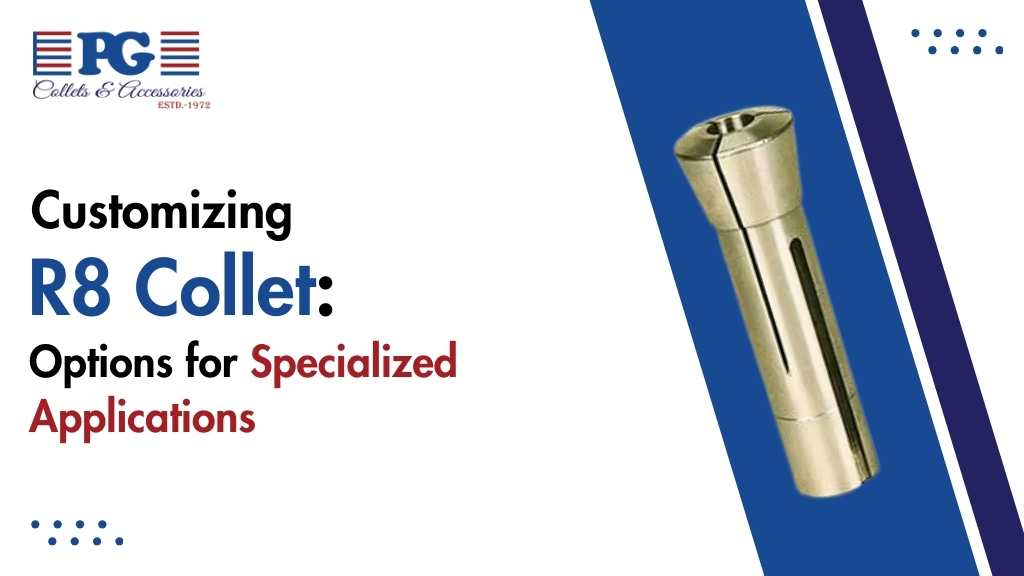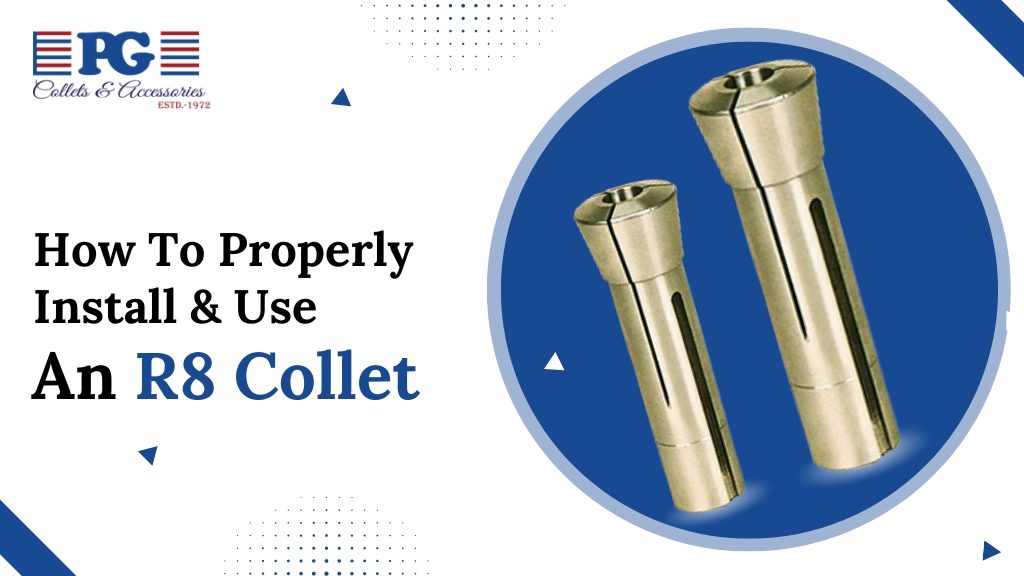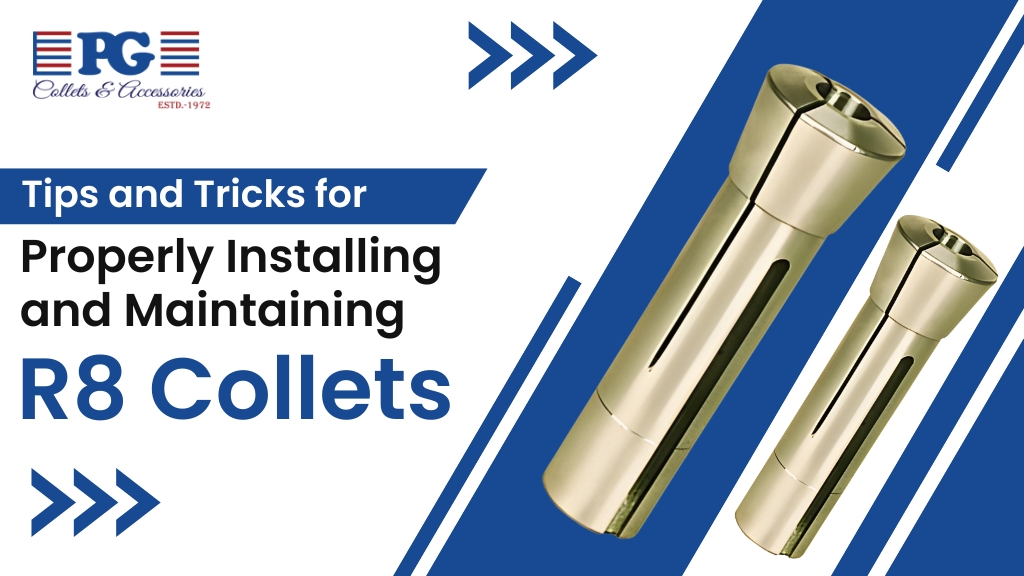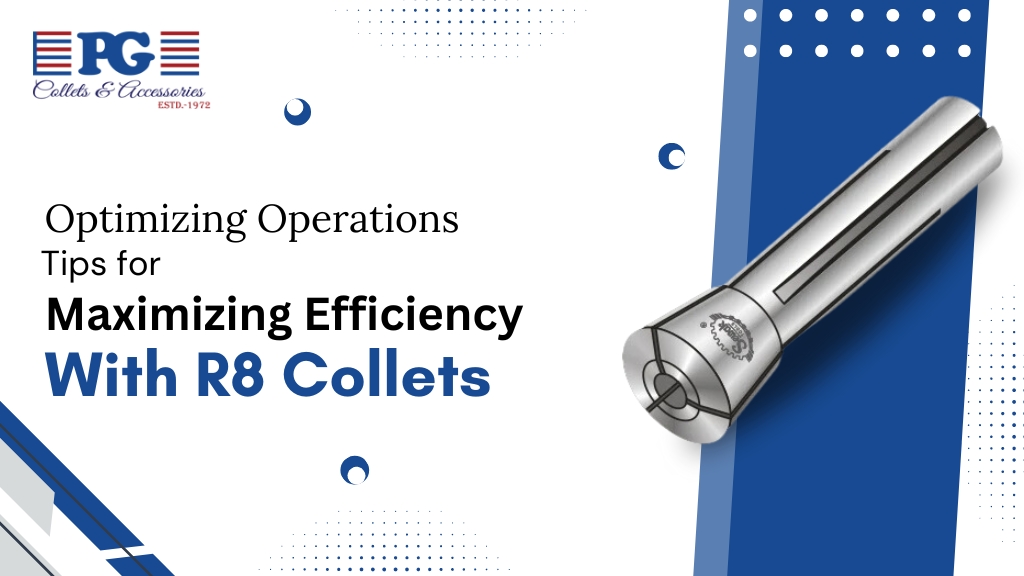In precision machining, accuracy and stability are crucial for achieving high-quality results. One of the most effective ways to ensure stability is by using an R8 collet, a key component in milling machines. Designed for superior grip strength and minimal runout, the R8 collet is a preferred choice among machinists. This article explores how an R8 collet enhances grip strength and reduces runout, leading to improved machining efficiency.
Understanding the R8 Collet
The R8 collet system was introduced in milling machines to offer a firm and accurate tool-holding system. As opposed to other collets, the R8 collet has a longer taper that guarantees proper tool alignment and enhanced holding capability. It is applied extensively in vertical mills and CNC machines for its capacity to uphold accuracy at high speeds.
How an R8 Collet Increases Grip Strength
1. Designed Taper
The R8 collet has a tapered shank that serves as a great gripping mechanism. This taper enables an even force distribution, reducing tool slippage and overall holding strength. Machinists are thus able to carry out high-speed operations without tool displacement risks.
2. Secure Tool Clamping
One of the key benefits of R8 collets is that it can grip cutting tools securely. The collet tightens uniformly around the shank of the tool, which provides a rigid hold. This minimizes vibration and improves the accuracy of machining, especially where deep cuts or heavy metal removal is involved.
3. Minimizing Tool Pullout
Tool pullout is a typical condition in high-speed machining, under which the tool may be forced out by the cutting forces. The self-locking characteristic of the R8 collet eliminates this risk and enables uninterrupted, stable machining operations. This capability is most important for high torque and cutting force applications.
How an R8 Collet Reduces Runout for Maximum Accuracy
1. High Concentricity
Runout, or true rotation deviation, can result in low surface finishes and dimension errors. The R8 collet has high concentricity, keeping the tool perfectly centered with the spindle axis. This high precision minimizes tool wear and increases machining accuracy.
2. Balanced Tool Holding
One of the essential elements in eliminating runout is the R8 collet’s balanced clamping mechanism. Uniform pressure is evenly applied by the collet over the tool so that there can be no unbalanced gripping causing misalignment. This uniformity guarantees smooth, efficient material removal.
3. Improved Surface Finish
Heavy runout may generate tool chatter and produce rough surface finishes. By reducing runout, the R8 collet provides smooth cutting action, leading to finer finishes and better quality parts. It is especially necessary in high-precision component applications like aerospace and automotive production.
Common Applications of R8 Collets in Machining
Due to their exceptional grip strength and accuracy, R8 collets are widely used in various machining operations, including:
- CNC Milling – Maintaining stable tool holding for high-speed CNC machining.
- Drilling and Boring – Offering low runout for precise hole-making operations.
- Engraving and Finishing – Promoting precision in fine engraving and surface finishing operations.
Why Choose a High-Quality R8 Collet?
Not all R8 collets are the same. Selecting a quality collet from a reputable manufacturer such as PG Collets guarantees durability, accuracy, and performance. A well-made collet retains grip strength and accuracy over long-term use, saving time and money on tool replacement.
Conclusion
An R8 collet is an essential tool for machinists aiming for the highest precision and efficiency. The strong grip of the R8 collet prevents tool slippage, while its precision construction reduces runout for improved machining quality. By choosing a high-quality R8 collet, such as those from PG Collets, engineers can enhance machining performance and achieve high-quality results. Investing in the right tool-holding system leads to increased productivity, minimal waste, and superior product quality.


